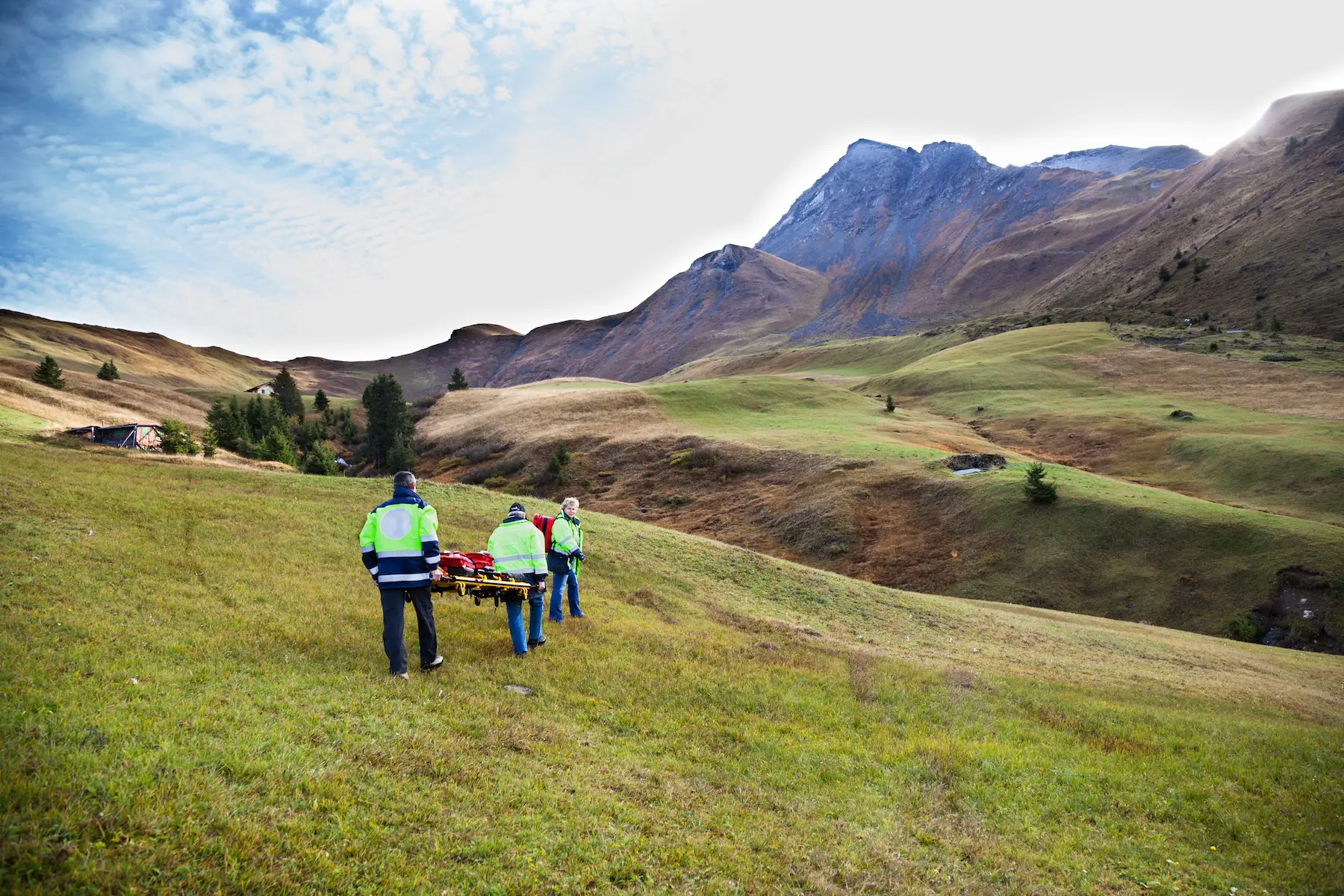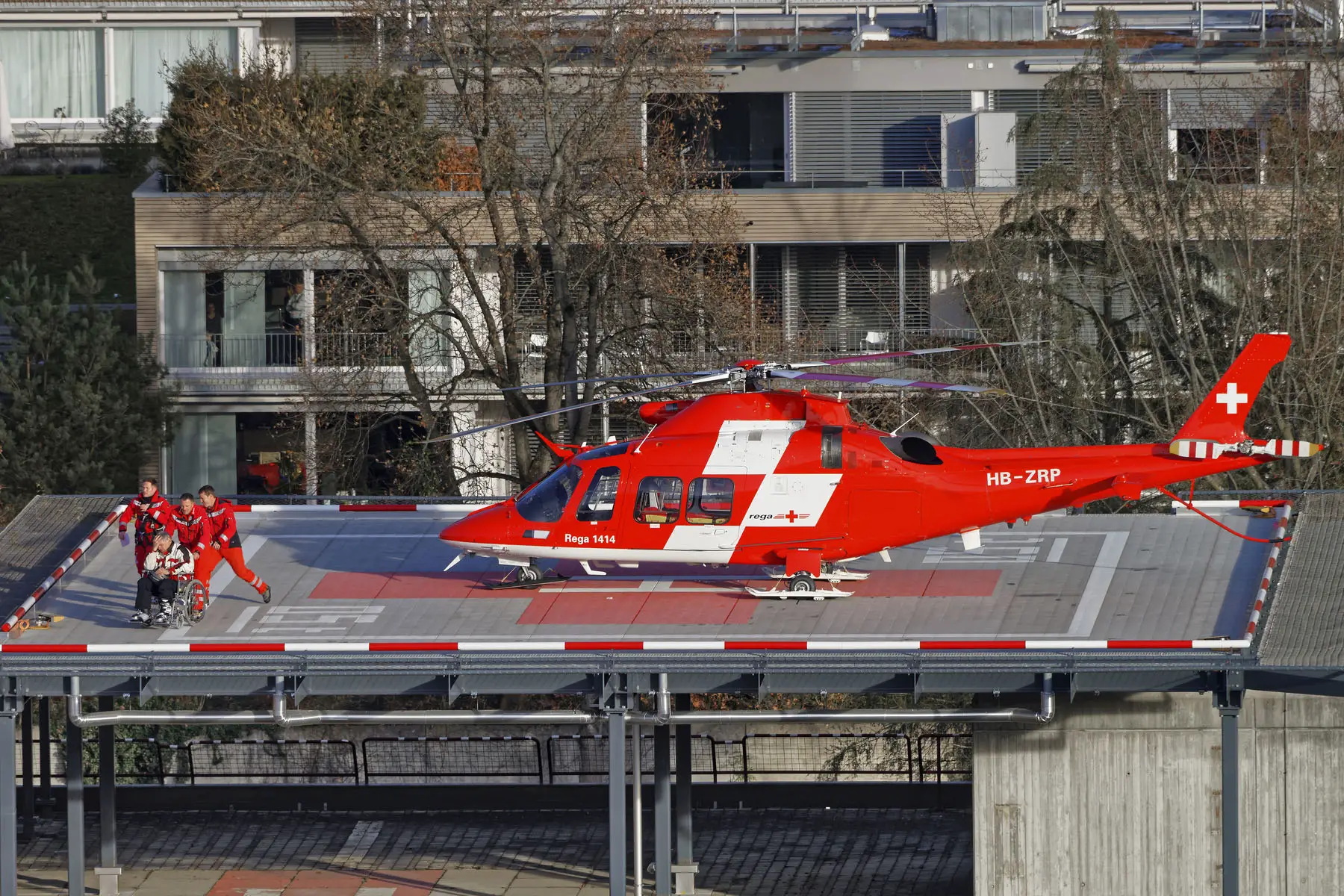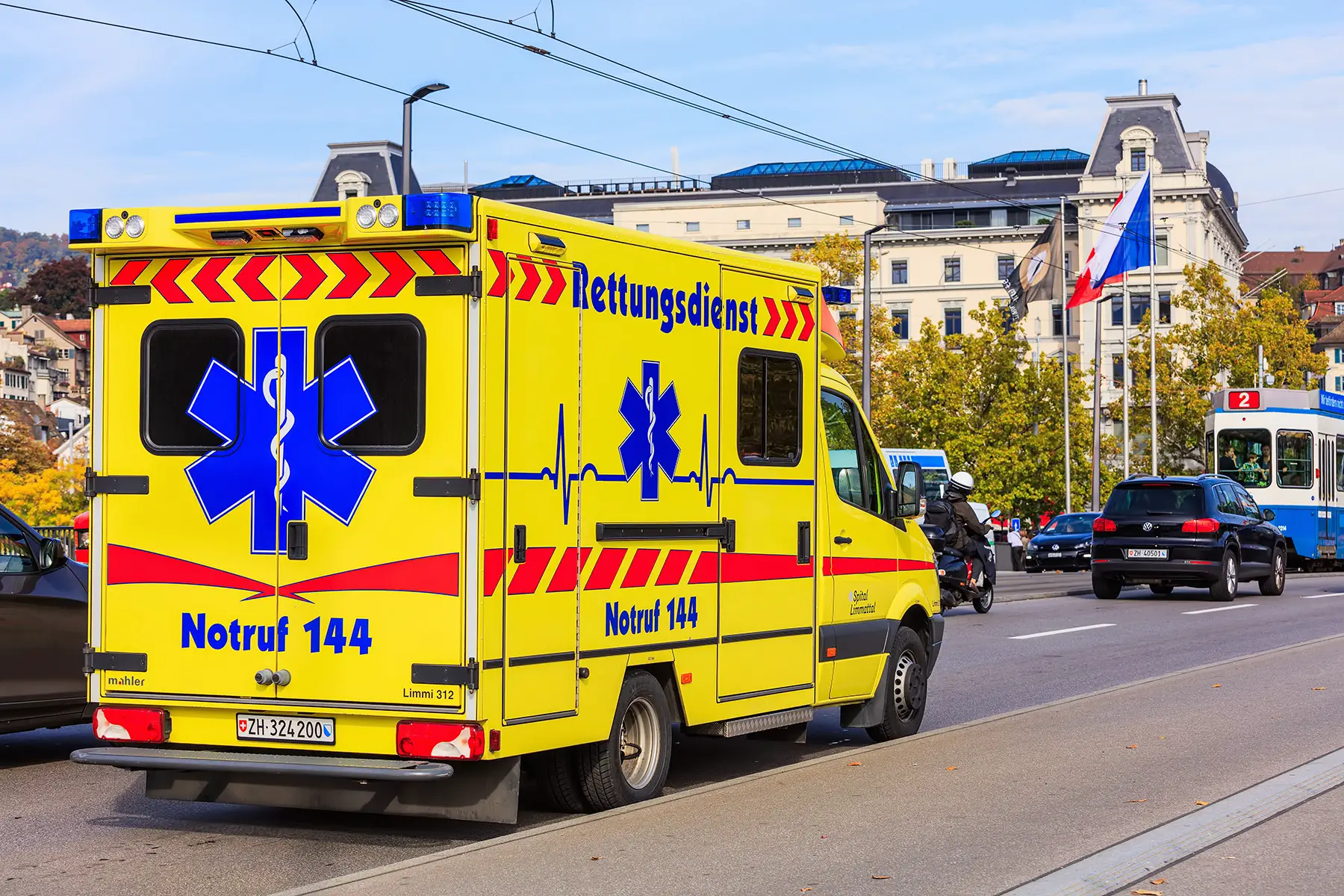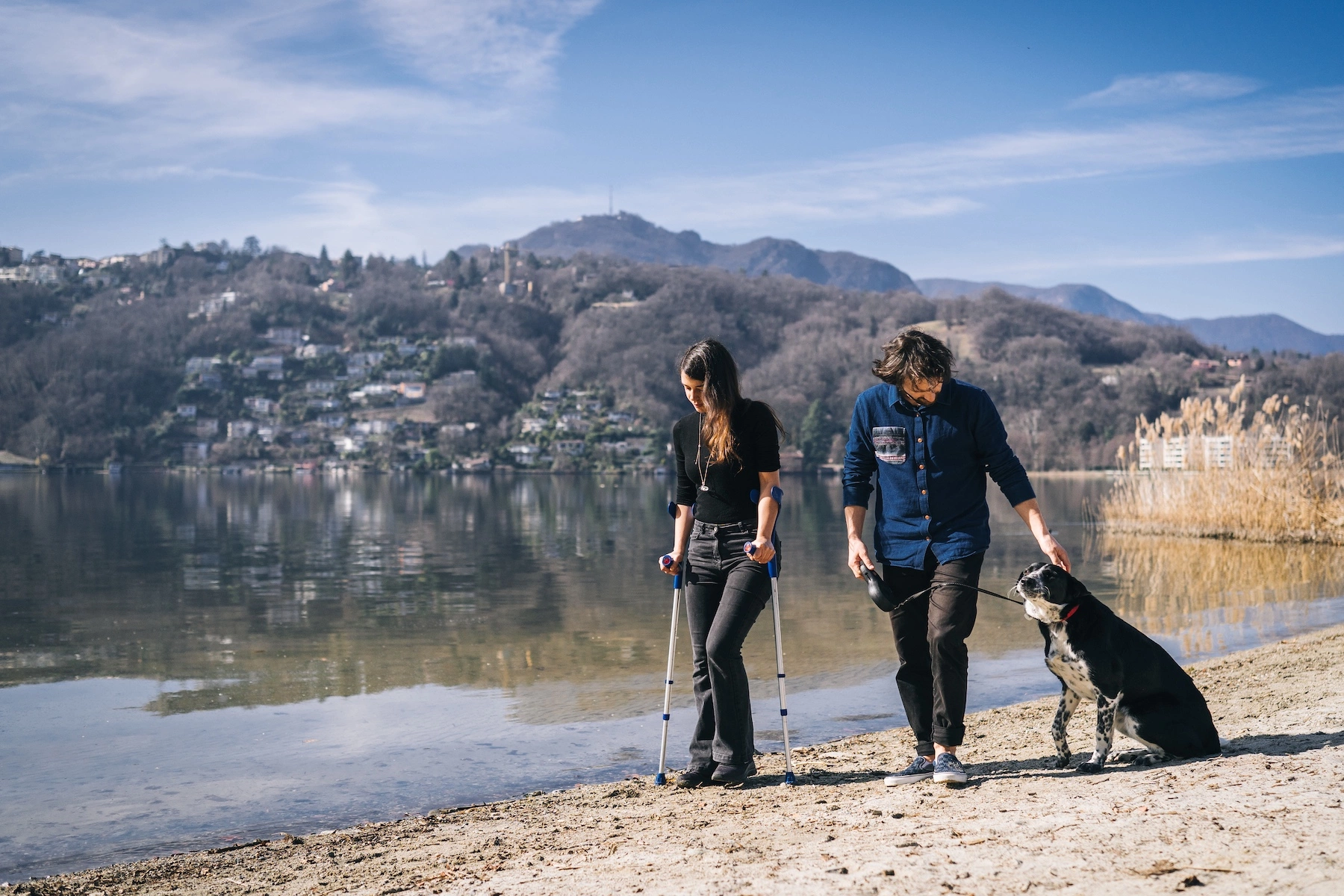Switzerland’s healthcare system makes finding a doctor easy, whether you need a quick consultation or a specialist’s expertise. From choosing the right doctor to navigating referrals, this article outlines what you need to know to feel confident and cared for in a medical situation.
Continue reading for the following information:
- Overview of doctors in Switzerland
- Who can see a doctor in Switzerland?
- How to find a doctor near me in Switzerland?
- How to see a doctor in Switzerland: step-by-step
- How much do doctor visits cost in Switzerland?
- Overview of Swiss doctors’ services
- How to complain about a doctor in Switzerland
- Practical medical words in French, German, and Italian
- Useful resources
Overview of doctors in Switzerland
Switzerland has one of the best healthcare systems in the world, covering nearly 99% of its residents, including expats. The system is funded through government-regulated private health insurance, which ensures that all residents can access a broad range of medical services, including doctor visits (French: médecin, German: Arzt, Italian: medico) and emergency care.
According to the World Bank (2021), Switzerland had around 4.4 doctors per 1,000 residents, which is on par with the rest of the region (EU average: 4.1). Of all outpatient doctors, 39% are primary care physicians, which translates to roughly 0.86 GPs per 1,000 people (Federal Statistical Office, 2022).
That said, the number of doctors can vary a lot depending on the location; urban centers had one GP per 1,000 inhabitants, while rural areas had only 0.4.
All doctors in Switzerland must be registered with MedReg. Most physicians are also affiliated with the Swiss medical association, FMH.

Family doctors or GPs in Switzerland
General practitioners (GPs – French: médecin de famille, German: Hausarzt, Italian: medico di base) are usually your first point of contact for medical issues. They work either independently or as part of a group practice (French: cabinet médical, German: Hausarztpraxis, Italian: studio medico), and you are free to choose whichever doctor you prefer. Typical opening hours are from 07:00 to 17:00, Monday to Friday, with one or two hours in between for lunch. Most practices are closed on weekends and public holidays.
GPs in Switzerland handle routine health issues, carry out basic tests, and provide referrals to specialists when needed. They also keep track of your medical records and coordinate follow-up treatments.
Medical specialists in Switzerland
If you need more specific care, the next step is usually a medical specialist (French: spécialiste, German: Facharzt, Italian: specialista). From dermatologists to neurologists, Switzerland’s network of specialized doctors is wide-ranging and easy to access, even for newcomers.
Medical specialists usually work in hospitals or private practices. While opening hours can vary significantly depending on the doctor, they typically fall between 08:00 and 18:00, Monday to Friday, with two hours in between for lunch.
Depending on your insurance provider, you may need a GP referral to see a specialist.
Who can see a doctor in Switzerland?
Everyone can access medical care to some degree or another, including asylum seekers, refugees, and tourists. However, for non-urgent medical help, you have to pay large out-of-pocket costs or have private health insurance coverage.
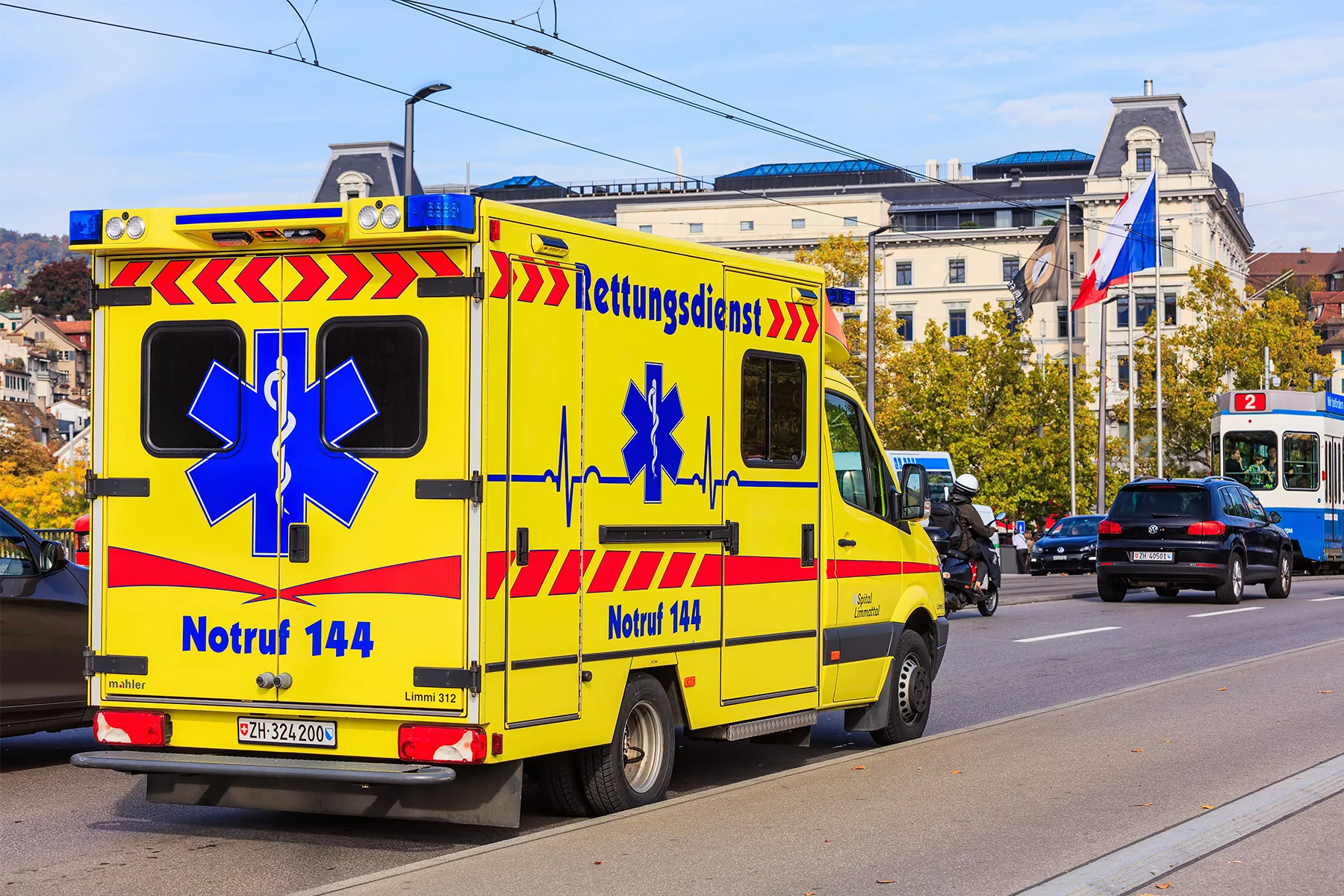
Our article on health insurance covers the topic (and costs!) in more detail, but basically, there are public and private doctors in Switzerland. While both offer the same levels of quality care, the difference is in the insurance coverage and availability.
More than half of all physicians worked in private practice. And while public doctors only require small copayments, they often have longer waiting times and more rushed consultations. Private doctors, on the other hand, cost more but have more flexible appointment scheduling and longer, personalized exams.
How to find a doctor near me in Switzerland?
If you are in a life-threatening situation, go to the nearest hospital emergency room (French: urgences, German: Notaufnahme, Italian: pronto soccorso). You can also call 144 for the ambulance services or 112, which is the free pan-European number for any type of emergency. It’s important to know that mandatory insurance only covers ambulatory costs in part.
If your situation is less immediate (and more you looking for information), you can find doctors and GPs listed on the FMH website or on doktor.ch. And if you’re uncomfortable speaking French, German, or Italian, you can also find English-speaking doctors in, for example, Zürich, on websites like Mobi Doctor.
For medical issues outside regular opening hours, you can contact the out-of-hours medical service (French: garde médicale, German: Ärztenotdienst, Italian: medico di turno) in your area.
How to see a doctor in Switzerland: step-by-step
Step 1: Register with your preferred doctor
Swiss residents are free to choose any doctor they want. If you have a standard medical insurance policy, you can switch physicians freely and don’t have to register beforehand. Those with a managed care insurance model usually do have to register with one GP.

Step 2: Book a doctor’s appointment
Although some GPs accept walk-in patients, most require you to schedule an appointment in advance. You can do so with a quick phone call to the individual medical center or using an online service like Doctena. Specialists don’t do walk-ins.
Wait times for GPs can be long compared to those of medical specialists. You can generally expect to wait a few days to see a GP and several weeks to see a specialist.
Step 3: Visit the health center
When you go to the scheduled appointment, make sure to bring your health insurance card and ID. This card contains your health records and allows your doctor to upload any prescriptions for medications, should you need them.
If you don’t have health insurance, bring your wallet.
How much do doctor visits cost in Switzerland?
In Switzerland, consultations with a public doctor or GP cost around CHF 100–200, depending on the location and services provided. You may also face additional charges for lab work, imaging, and prescriptions. Visits to specialists typically cost an average of CHF 500 per session, also depending on the services provided.
It’s worth noting that Swiss patients pay an annual deductible ranging from CHF 300 to CHF 2,500 before insurance coverage begins. After that, you pay 10–20% of treatment costs, up to a maximum of CHF 700 per year (CHF 350 per year for children).
Of course, when you visit a private doctor, the costs may be higher.

Do I need health insurance in Switzerland?
Yes. Our article on health insurance in Switzerland explains everything in full detail, but as a quick summary:
- Basic health insurance is mandatory for all Swiss residents.
- Statutory insurance covers most essential treatment, but not all. Patients will need to pay large out-of-pocket costs or take out private (top-up) insurance to cover it for them.
There are many private health insurers in Switzerland, and it’s worth shopping around to find the best deals. Aside from the home-grown insurance providers, there are also international insurers that cater specifically to expats. These providers are ideal for residents who travel outside the country a lot and anyone who prefers expat-focused care:
Overview of Swiss doctors’ services
Prescription medications
If necessary, the doctor may prescribe you medication, which you can pick up from any pharmacy (French: pharmacie, German: Apotheke, Italian: farmacia) in Switzerland. You’ll typically need to pay a 10–20% fee, depending on the medication.
To find your nearest pharmacy, you can use any search engine or check this list of Swiss pharmacies (in German). For one open outside of regular hours, visit Apo24.

How to complain about a doctor in Switzerland
If you want to file an official complaint about a doctor in Switzerland, you can contact your canton’s ombudsman (French: médiateur, German: Ombudstelle, Italian: difensore civico) for free. Depending on your location, you can call, email, or file a report online (e.g., Zurich’s Ombudsman).
You can also report the doctor to the Swiss Organization for Patient Protection (SPO/OSP) or the FMH review office for FMH doctors.
Reviewing your case can take several days or weeks. All investigative proceedings are conducted in French, German, or Italian.
Practical medical words in French, German, and Italian
Most doctors in Switzerland can communicate in English. However, it is a good idea to have a phrasebook or a translator app on your phone in case you need to explain more complicated health issues.
You’ll also want to remember some of these medical words in French, German, and Italian:
| English | French | German | Italian |
| general practitioner | médecin de famille | Hausarzt | medico di base |
| doctor’s office | cabinet médical | Praxis | studio medico |
| appointment | rendez-vous | Termin | appuntamento |
| pain | douleur | Schmerz | dolore |
| headache | mal à la tête | Kopfschmerzen | mal di testa |
| stomach ache | mal au ventre | Bauchschmerzen | mal di stomaco |
| back pain | mal de dos | Ruckenschmerzen | mal di schiena |
| fever | fièvre | Fieber | febbre |
| cough | toux | Husten | tosse |
| prescription | ordonnance | Rezept | farmaco da prescrizione |
| pain killer | analgésique | Schmerzmittel | antidolorifico |
Useful resources
- Federal Office of Public Health (FOPH) – official government website with information on healthcare in Switzerland (as well as patients’ rights)
- MedReg – official website of the disciplinary body of doctors in Switzerland

